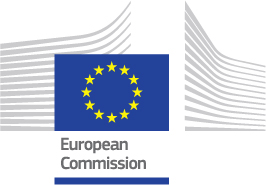Fostering civic engagement in students
Course details
How can we empower young people to become active, informed, and responsible citizens? In an increasingly complex and connected world, teaching young people about democracy and civic responsibility is more important than ever. Educators have the power to inspire the next generation to play a real part in their communities and the wider world, but they need the right support and resources to do so.
This short course is for educators in Europe from all levels and subjects who want to gain fresh knowledge, practical strategies, and ready-to-use tools to encourage civic engagement in their students. Based on core European values - such as democracy, human rights, inclusion, equality, and the rule of law - the course helps you understand these principles and apply them in your educational settings.
You will engage deeply with essential topics including the legal and institutional foundations of EU values, what European citizenship really means and contemporary challenges to democratic participation.
The course combines theory and practical methods you can use straight away in the classroom. You will learn how to create inclusive and participatory learning environments that promote critical thinking, open dialogue, and active citizenship. Interactive tasks, case studies, and reflection prompts ensure that you leave with clear ideas and renewed confidence to help your students become engaged and committed members of society.
The course is offered by the European School Education Platform. Visit our website for more information.
Duration and workload
Start date and end date: open-ended, you can take this course (or any section) at your own pace
Duration: self-paced
Workload: 8-10 hours
This course is based on a version that ran from Monday, 29 September 2025, to Wednesday, 15 October 2025. The original course provided participants with opportunities to interact during a specific active timeframe of 2.5 weeks, exchange ideas and engage in a peer assessment. However, we recognise that not everyone was able to attend during the scheduled timeline.
To make the course accessible to a wider audience, we’ve developed this self-paced format. This version allows you to explore the content and complete the activities at your own pace, whenever it suits you best.
What the self-study format means:
- Flexible schedule: You decide when and how to engage with the course materials. There are no deadlines, live sessions, or required meeting times.
- Independent learning: While the original course included discussions and peer reviews taking place in certain days and weeks, this format empowers you to work independently, using the same materials and guidance provided during the initial version. Please note that discussions in the forums and contributions on Padlets will not be moderated, allowing for a fully self-directed learning experience.
- Self-assessment: To replicate some of the reflective benefits of peer feedback, you will be encouraged to evaluate your own work using the provided assessment criteria.
Course competences
The recipient of this certificate has demonstrated proficiency of the following competences according to the digital competence framework of the European Commission's SELFIE for TEACHERs tool:
- Professional engagement - Professional collaboration at B1 level
- Professional engagement - Professional learning (through digital technologies) at B1 level
- Empowering learners - Actively engaging learners at B1 level
- Teaching and Learning - Teaching at B1 level
For more information about the competences and the proficiency levels see the SELFIE for TEACHERs toolkit.
Target audience
TARGET AUDIENCE
Learning objectives
- Understand the legal and institutional foundations of EU values and civic engagement, by examining key EU treaties, legal frameworks, and the concept of European citizenship through case studies, interactive discussions, and guided analysis.
- Design and integrate classroom activities that embed civic education and EU values across different teaching contexts and subjects through cross-curricular approaches, practical exercises and case analyses that demonstrate how to apply theory to practice.
- Reflect on strategies to foster student participation and improve on your role as an educator in promoting democratic values and inclusive learning environments through the peer-assessment process, a final project and reflection prompts that encourage you to critically assess your teaching approach.
This content is offered by the European Commission. The European Commission is the European Union's politically independent executive arm. It is alone responsible for drawing up proposals for new European legislation, and it implements the decisions of the European Parliament and the Council of the European Union.

Schedule
- How this self-paced course works
- Module 1: Understanding civic engagement in the context of EU values
- Module 2: Making civic engagement tangible in the classroom
- Module 3: Empowering students as active citizens
- Certificate of completion


